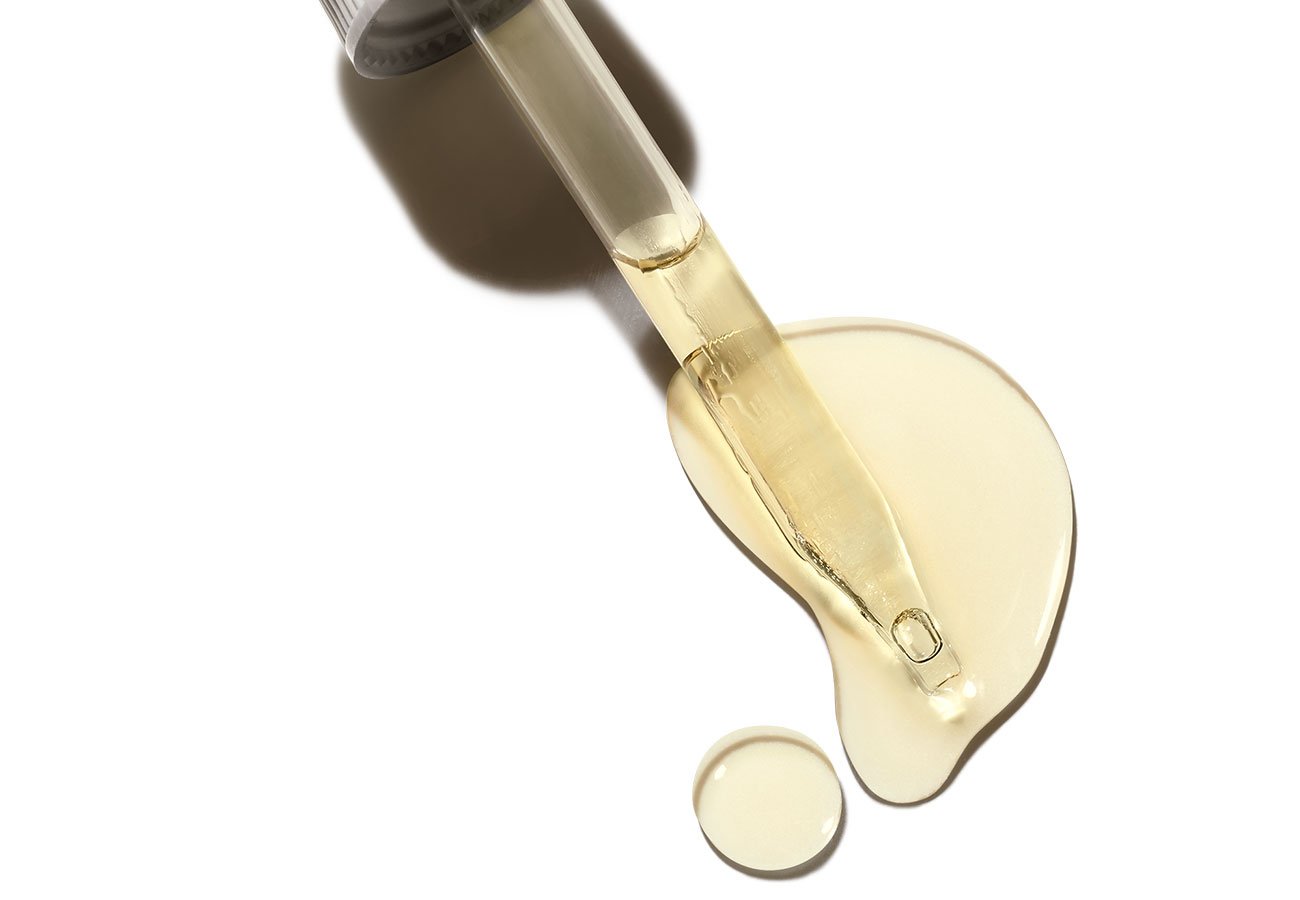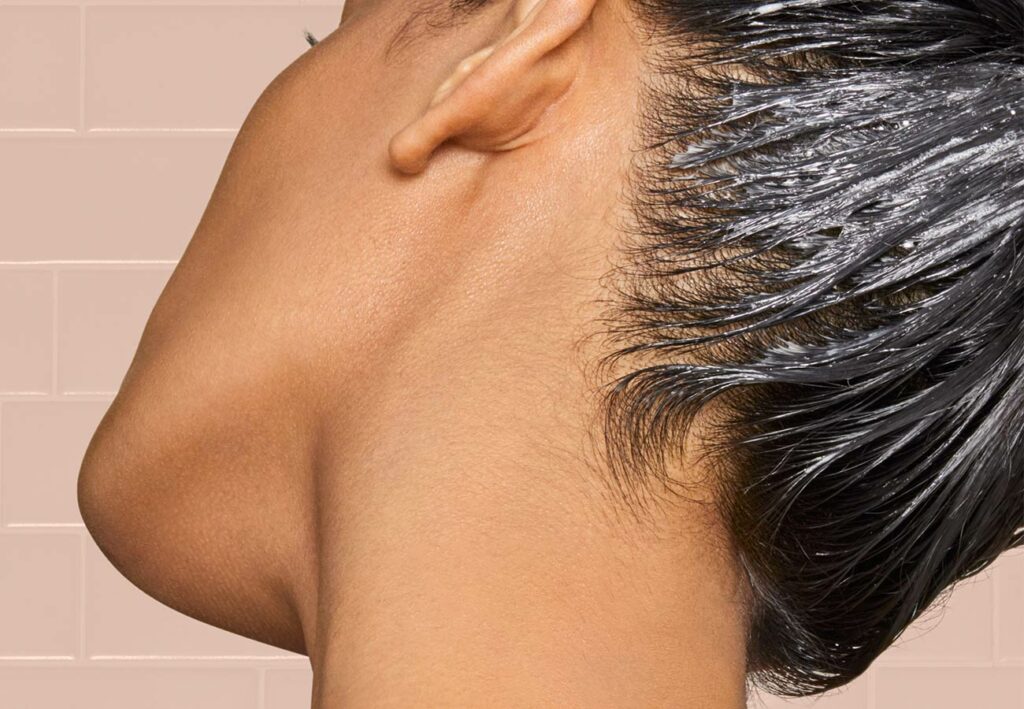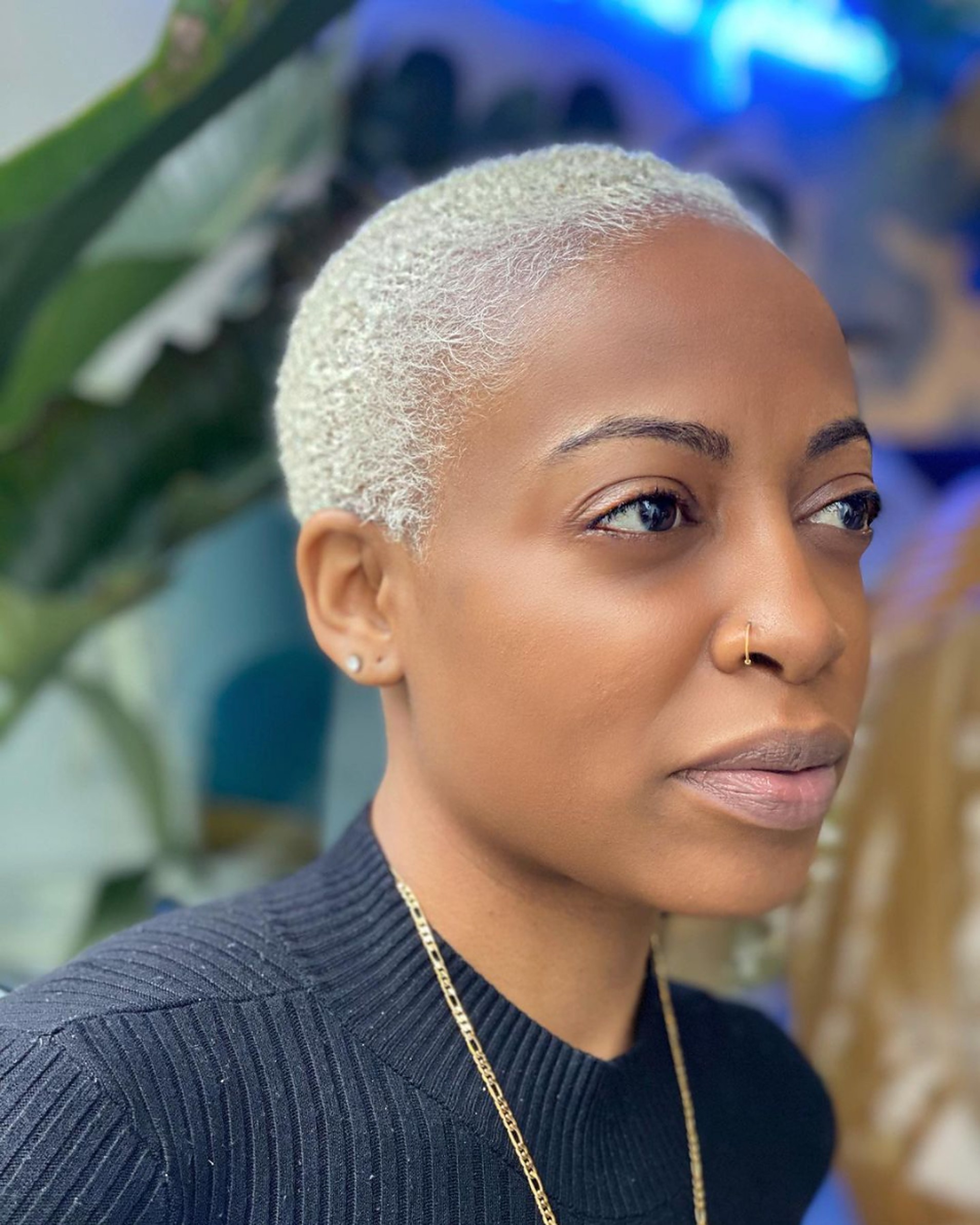What is castor oil?
The natural ingredient is a vegetable oil from castor beans that’s packed with nutrients. Castor oil, also known as Ricinus communis, originates in tropical east Africa, though it is used in India and the West Indies for medicinal and beauty purposes.
Typically, castor oil is clear or pale yellow. If you’ve seen black castor oil on the shelves, that means it underwent a roasting or boiling process.
Castor oil hair benefits
At a molecular level, castor oil is made of essential fatty acids and is particularly rich in ricinoleic acid, which is a unique fatty acid that makes castor oil an unctuous oil. Those can give hair follicles a moisture boost to help prevent scalp irritation. Castor oil benefits for hair are numerous. Castor oil is known for nourishing and strengthening hair, thanks to its unique combination of vitamins, fatty acids, and antioxidants. This sets it apart from other hair oils, which are mostly made up of just fatty acids. Its potent blend nurtures the scalp and strands, which is why it’s increasingly found in hair products.
If your strands are prone to breakage, that’s another reason to stock up on castor oil. Since it’s a humectant—meaning it locks in moisture and shine—it makes hair less prone to being dry and splitting, so it can grow healthier. Castor oil is chock full of ricinoleic acid, which is known to improve blood circulation in the scalp. In turn, that leads to more nourished hair follicles, translating to stronger strands and less breakage.
Your hair products will get a boost from castor oil, as it’s believed to increase their absorption. That means your hair serums and the like will penetrate more effectively, helping them get their job done.
Does castor oil promote hair growth?
Castor oil is high in Vitamin E, minerals, proteins, and omega -6 and -9 beneficial fatty acids. It actually has a whopping 18 fatty acids in total. But what makes it super beneficial for your mane is its unusually high levels of ricinoleic acid (it’s 90% of its nutritional content!). If you’ve never heard of ricinoleic acid, here’s what you need to know. First, ricinoleic acid helps increase circulation to the scalp and improves hair growth. It nourishes the hair roots so that hair grows stronger, and balances scalp pH, which keeps the scalp functioning at its ideal oil levels. A healthy scalp is the ideal foundation to promote natural healthy growth.
How to use castor oil for hair
To keep it simple, you can rub a few drops into your scalp. If you’re looking to add shine and smoothness, apply it from the midsection of hair down to the ends, which also helps prevent breakage. Remember that using less is more, since castor oil is sticky and heavy.
Though it’s rare to have a reaction to castor oil, it’s always best to do a patch test before slathering it all over your scalp, since the skin there tends to be sensitive. Apply a small amount of castor oil behind your ear or on the inner wrist a few times to make sure it’s compatible with your skin.
How often to use castor oil
Once again, less is more with castor oil. Don’t use it on your scalp more than once a week, since it can cause buildup. Those with fine strands should use it less frequently.
Castor oil as a dry scalp treatment
Castor oil helps fight flakes that are caused by a dry scalp. Plus, when used as a cleansing oil, it gently attracts dirt and oil, leaving the scalp clean.
Complementary ingredients
Castor oil is incredibly dense, so to tone that down, you can mix it with another lighter oil. Try coconut or jojoba oil, which will also minimize the scent. Castor oil also plays well with the various, custom ingredients that make up your Prose pre-shampoo hair mask.
How to incorporate castor oil into your hair care routine
To really reap the castor oil benefits for hair, you can use it as a hair mask. Keep in mind that castor oil can easily stain clothes and towels, so you’ll want to use an old T-shirt and towel for this.
- Start out by sectioning your hair.
- Put on rubber gloves and apply castor oil to your scalp using an applicator brush for precise and even application.
- Massage the oil into your scalp, then apply castor oil to the rest of your hair, combing it through to spread it evenly.
- While it doesn’t have to be dripping wet, you should use enough castor oil so that hair is moist.
- Once you’re done applying the castor oil, put on a shower cap and make sure all of your hair is inside.
- Leave on the shower cap for two hours so that the castor oil has enough time to penetrate the scalp, hair follicles and hair shaft. However, don’t leave it on much longer than two hours, as that can actually dry out your hair and scalp.
- Once your treatment is finished, shampoo and condition hair. As a heads up, you might have to shampoo twice to get all of the castor oil out.
A popular beauty hack involvesis using castor oil on eyebrows and eyelashes to boost their growth. Since eyes are especially sensitive, be sure to do a patch test. Always apply it to eyelashes that are clean and free of makeup. To make less room for error, an easy application method is dipping a cotton swab into a small amount of castor oil, closing your eye, and gently dabbing it onto lashes. Use it sparingly on brows and lashes to avoid getting it in your eyes.
What should I look for when buying castor oil for hair?
Cold-pressed castor oil is the gold standard, that’s why Prose uses it in their pre-shampoo hair mask. In case you’re wondering exactly what that means, cold-processed is extracted from castor seeds using great pressure, instead of using heat or roasting, resulting in an oil that’s lighter and thinner. A cold-pressed method retains more nutrients, resulting in better quality.
Jamaican black castor oil is another option. Made with roasted castor beans and the ash produced by the roasting process, it’s best for thick, dry, or coarse hair. While cold-pressed castor oil can be applied on the hair shaft, black castor oil can only be used on the scalp.
Wrap up
Castor oil’s benefits for hair are widespread. From helping ease dry scalp irritation to potentially aiding in hair strength, castor oil can do it all. Feel free to use the oil on its own as a treatment or opt for haircare products that are formulated with efficacious, natural ingredients including castor oil, like the Prose pre-shampoo hair mask.





